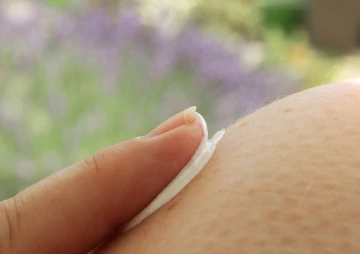Keep Your Skin Safe from Summer Sun
The sun gives us light and life, but it is also one of the world’s top causes of cancer because of the daily exposure to ultraviolet (UV) light it provides.


Arizona is one of the nation’s sunniest locales, and our bright days lure people outdoors. Lisa Quale, health educator at the University of Arizona Skin Cancer Institute, is a walking, talking sun-safety expert, and comes preloaded with all sorts of tips and tricks for keeping your skin healthy in the sun-drenched Sonoran Desert — or anywhere else on the planet.
Arizona is one of the nation’s sunniest locales, and our bright days lure people outdoors. Lisa Quale, health educator at the University of Arizona Skin Cancer Institute, is a walking, talking sun-safety expert, and comes preloaded with all sorts of tips and tricks for keeping your skin healthy in the sun-drenched Sonoran Desert — or anywhere else on the planet.
I’ve heard contradictory information on which sunscreens are the best — mineral sunblocks or chemical sunscreens. What do I need to know about the different sunscreen ingredients?
If you pick up a bottle of sunscreen, it’s going to have either mineral ingredients, like zinc oxide and titanium dioxide, or one of the chemical ingredients, like avobenzone or mexoryl. Minerals primarily reflect ultraviolet radiation, and chemicals absorb ultraviolet radiation before it can harm your skin.

If you are concerned about sunscreen chemicals, opt for products with zinc oxide and/or titanium dioxide, ingredients deemed safe for use by the U.S. Food and Drug Administration.
The Institute always has endorsed covering up and avoiding too much sun as the primary ways to avoid skin cancer. Sunscreen should be used as a last resort for uncovered skin. If you are concerned about sunscreen chemicals, opt for products with zinc oxide and/or titanium dioxide, ingredients deemed safe for use by the U.S. Food and Drug Administration. Both products form a protective barrier that reflects ultraviolet radiation from the sun. They are inorganic minerals thought to be too large to reach the bloodstream.
Are other sun-safety strategies commonly overlooked?

When applying sunscreen, do it in two installments — one coat, and then a second coat right before you go outside.
You still need to use sunscreen on any area uncovered by the UPF clothing — wear it on your face, wear it on your hands. And the longer the sunscreen is on, the less effective it becomes because sunscreens break down in the sun, which is why it needs to be reapplied every 90 minutes.
I sometimes worry I don’t use enough sunscreen because I don’t like the way it feels. How do I know if I’m getting adequate coverage?
If sunscreen is difficult to rub in because it is drying too quickly, more is needed. On the flipside, if you pour a bunch and it doesn’t seem to be getting absorbed by the skin, that’s too much. If you’re worried about whether you’re applying enough, do it in two installments — one coat, and then a second coat right before you go outside.

No matter what color your skin is, if you’re exposed to the sun, there’s a possibility that you can get skin cancer.
It’s assumed people with darker skin don’t get skin cancer. Nobody should think they are immune from getting skin cancer. Yes, you probably are at a higher risk if you have fair skin, blue eyes or blond or red hair. However, darker-skinned ethnic groups get skin cancer too, some of which are very aggressive. Singer and songwriter, Bob Marley, who died of melanoma, is a perfect example. Everyone needs to check their skin and see a dermatologist if you see something unusual.
How often do I need to be screened for skin cancer?
There’s no single answer. I have really fair skin and I got a lot of sun exposure when I was a kid, so I started getting annual skin exams when I was in my 20s. All my dermatologists, from the time I was 20 on, said to come back and see them in a year. But it’s different for everybody. A dermatologist is going to make a judgment about your sun exposure history, your family skin cancer history and your personal skin cancer history and go from there. In most people’s cases, they should be screened every year, and for people with a higher risk it might be every six months.
About the Author
Lisa Quale began her career with the University of Arizona Cancer Center in 2002, and became the health educator for the Skin Cancer Institute when it was established in 2006. She educates patients, oversees all educational materials and aids in the development of brochures, videos and website information on skin cancer prevention and detection.

